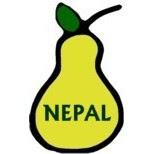UNICEF PRESS RELEASE
UNICEF reiterates calls to halt Inter-country adoptions in Nepal
Kathmandu, 8th February 2010: UNICEF has endorsed the findings by the Permanent Bureau of the Hague Conference — delivered to the Government of Nepal today — to suspend inter-country adoptions here.
The report on Inter-country adoption in Nepal follows an invitation by the Government of Nepal to the Hague Conference to undertake a mission to the country in November 2009 after Nepal had signed the Hague Adoption Convention earlier, in April 2009.
In signing the Hague Adoption Convention, Nepal undertook to bring its adoption policies in line with guidelines laid out in the Convention with the intention of ratifying at a later date. The report submitted today by the Hague Conference on Private International Law (HCCH) made several recommendations for Nepal, notably:
+ Better regulation of children’s homes.
+ To develop child protection systems — including alternative care to parental care.
+ To support children by supporting and preserving their own families.
+ Stricter laws governing inter-country adoptions as well as controls to eliminate financial gain from inter-country adoption.
+ Improve training and resources of staff.
+ Create a strong central authority for adoptions.
+Implement the recommendations of the UNICEF / Terre des hommes Foundation 2008 study calling for a suspension of adoptions.
The 2008 study by UNICEF and Terre des hommes Foundation entitled “Adopting the Rights of the Child” found that around 60 percent of the children up for adoption were not actually orphans but were separated from their families and that a culture of child abuse including the abduction, trafficking and sale of children had flourished due to poor controls. And although the Government suspended inter-country adoptions in 2007 and 2008 due to a range of concerns, they lifted the suspension in late 2008 and adoptions began again in 2009.
“Sadly little has changed since the initial report — the best interests of the child are still not at the centre of these adoptions and these must be the guiding principles for all those working with children no matter how complex the issue,” said UNICEF Nepal Representative Gillian Mellsop. “When basic safeguards are in place abuses are avoided and adoption is available to the children who need it. Implementation of the Hague Adoption Convention is the best way to prevent abuses and allow safe inter-country adoptions to continue.”
UNICEF Nepal has been supporting the Government’s commitment to improve its legislation on child protection and will continue to support the Government in following up on the recommendations of the Hague Conference’s report.
Receiving States have also demonstrated their willingness to provide practical assistance, in collaboration with the Permanent Bureau’s technical assistance programme, to give support to Nepal to help make improvements. Most inter-country adoptions from Nepal are with families from Spain, Italy, France and the United States of America.
On the Convention:
The Hague Adoption Convention on Protection of Children and Co-operation in Respect of Inter-country Adoption of May 1993 contains is a list of guidelines and procedures to safeguard children, as well as their biological and adoptive parents, against potential risks from inter-country adoption, such as abduction, sale and trafficking. The Convention, which also operates through a system of national Central Authorities, reinforces the UN Convention on the Rights of the Child (Article 21), which deals with the issue of adoption.
*****
http://www.unicef.org/nepal/5476_6051.htm
Ethics, Transparency, Support
~ What All Adoptions Deserve.
http://www.pear-now.org/
